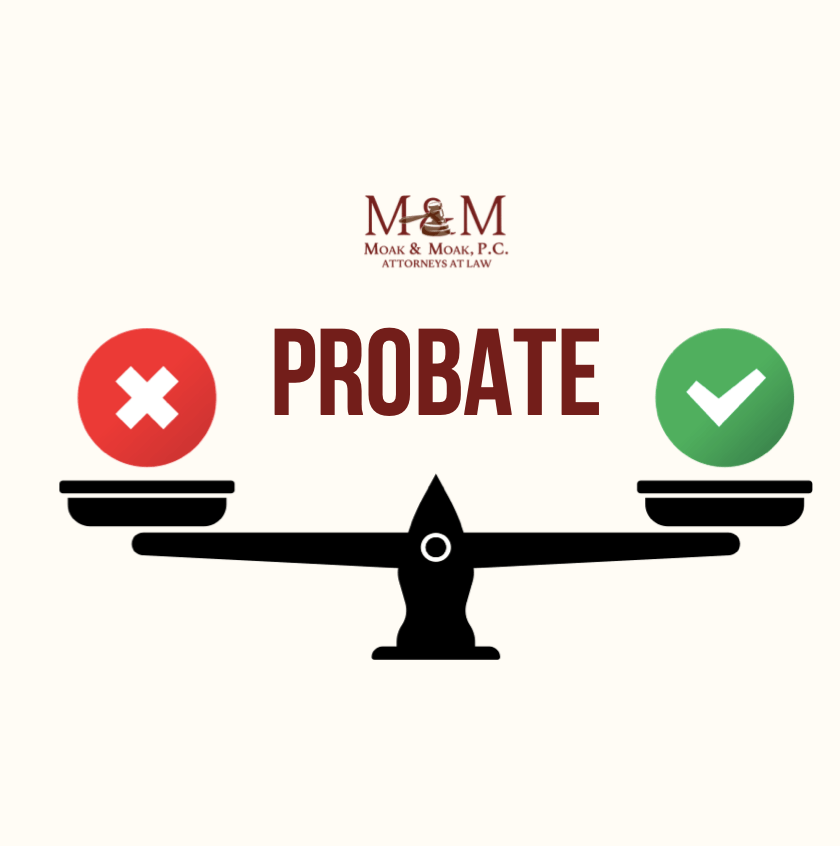A good friend and classmate, Matthew Crider, practices estate planning law in California. He wrote an article on the pros and cons of probate there, so this week, I have done the same for probate in Texas.
Many times the term “probate” frequently carries a negative connotation. In fact, financial planners advise many individuals, particularly those with valuable accounts and property, to try to avoid probate whenever possible.
However, the purpose of the probate system is ultimately to protect the deceased’s accounts and property, as well as their family, and in some instances it may even be advantageous. Consider briefly the advantages and disadvantages of probate.
The Pros
In certain instances, particularly when there is no Will, the system ensures that all accounts and property are distributed in accordance with state law. Here are some potential benefits of involving the probate court in the administration of a deceased person’s estate in Texas:
- It provides a reliable procedure for the distribution of the deceased person’s property in the absence of a Will.
- If a Will exists, it validates and enforces the wishes of the deceased.
- It ensures that taxes and valid debts are paid so that the beneficiaries are not left with an uncertain feeling regarding the decedent’s affairs.
- If the deceased had debts or unpaid bills, probate provides a method for limiting the amount of time creditors have to file claims, which may result in debt discharge, reduction, or other advantageous settlement.
- Probate can be advantageous for the distribution of smaller estates where estate planning would have been too expensive.
- It allows for third-party oversight by a respected authority figure (judge), potentially reducing family conflicts and aiding in ensuring everyone’s best behavior.
The Cons
Although probate is intended to facilitate the transfer of accounts and property after a person’s death in a fair manner, you might consider bypassing the process for the following reasons:
- Generally speaking, probate is a matter of public record, meaning that certain documents, including personal family and financial information, become accessible to the public. However, in Texas, if there is no outstanding debt, then an inventory is not required to be filed, thus protecting the family’s privacy.
- There may be substantial costs, such as court fees, attorney’s fees, and executor fees, which are deducted from the value of the assets you intended to leave to your loved ones. These costs must be balanced with the cost to set up a trust and prepare the legal documents to transfer all your assets into the trust, then maintain the trust.
- Probate can be time-consuming, delaying the inheritance of your beneficiaries for months or even years.
The Bottom Line
Whether you choose a Will or Trust to transfer your assets, you must examine both mechanisms to decide which makes sense for you.
A skilled estate planning attorney can devise a plan to help you transfer your assets and make life easier for your heirs. As I have said before, probate is just a word for transferring your assets. Do not be scared of it and seek an attorney with experience in estate planning to make the process easier.

